Recreational Pot is Legal in Michigan, But Medical Dispensaries Are Still Opening Doors
Center Line, a small city in Macomb County, is opening its first medical marijuana dispensaries to boost the local economy.
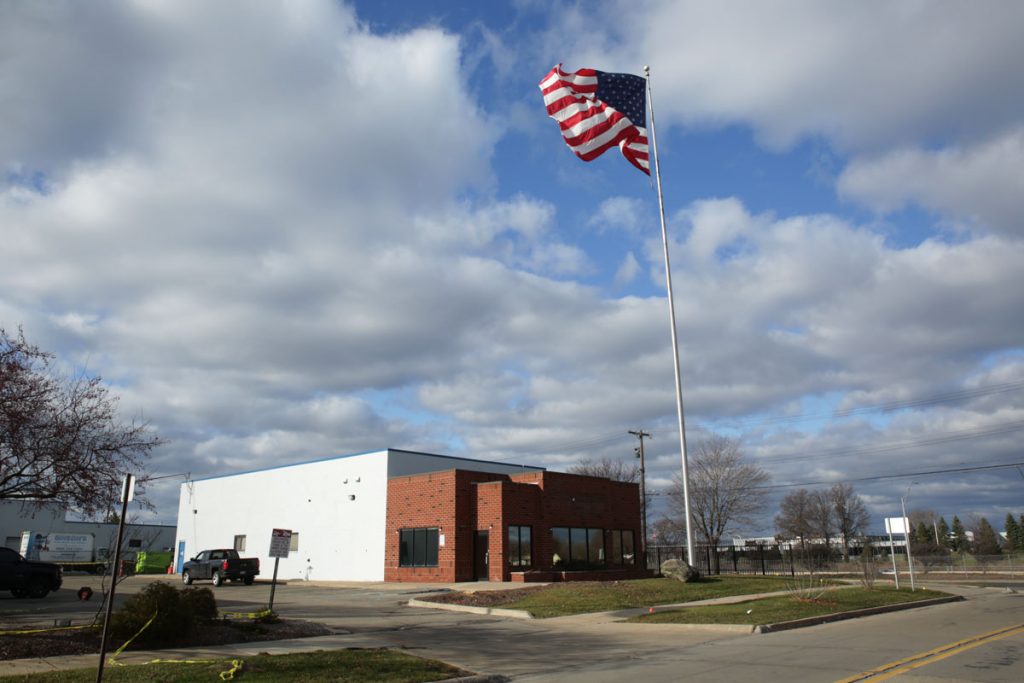
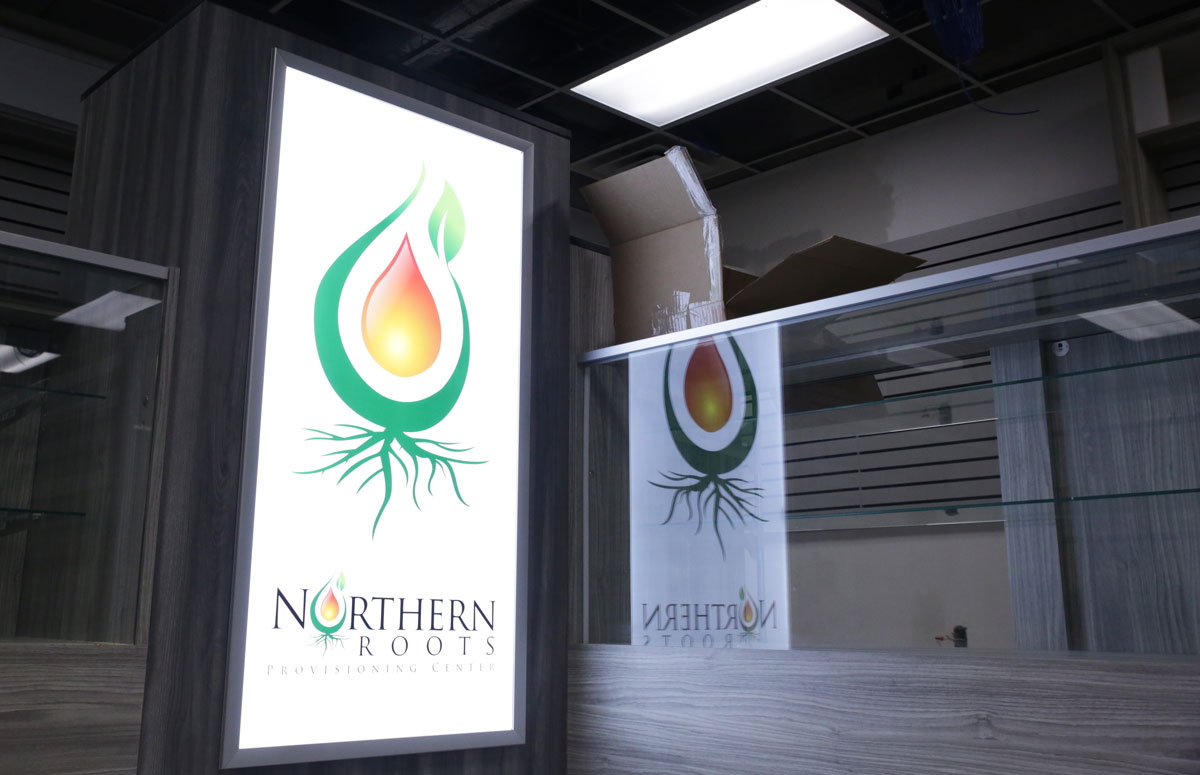
In Center Line, a former call center on Lawrence Avenue is being transformed into a medical marijuana dispensary.
“When the patient gets buzzed in or called back into this room they’ll be directed to either express ordering station one or two,” explains Nick Hannawa, the owner of Northern Roots, the small Michigan-based medical marijuana company that will be running this shop.
In the back area, there will be shelves with little jars of marijuana on tethers. That way customers can examine the product without pocketing it, Hannawa explains. Special products will be in their own display case.
“New stuff comes out during the holidays, believe it or not. During October, they came out with a pumpkin spice flavored edible,” says Hannawa.
“A city of less than two square miles having issued upwards of 28 [medical marijuana] permits is something you won’t see anywhere else in Macomb County.” – Dennis Champine, Center Line City Manager
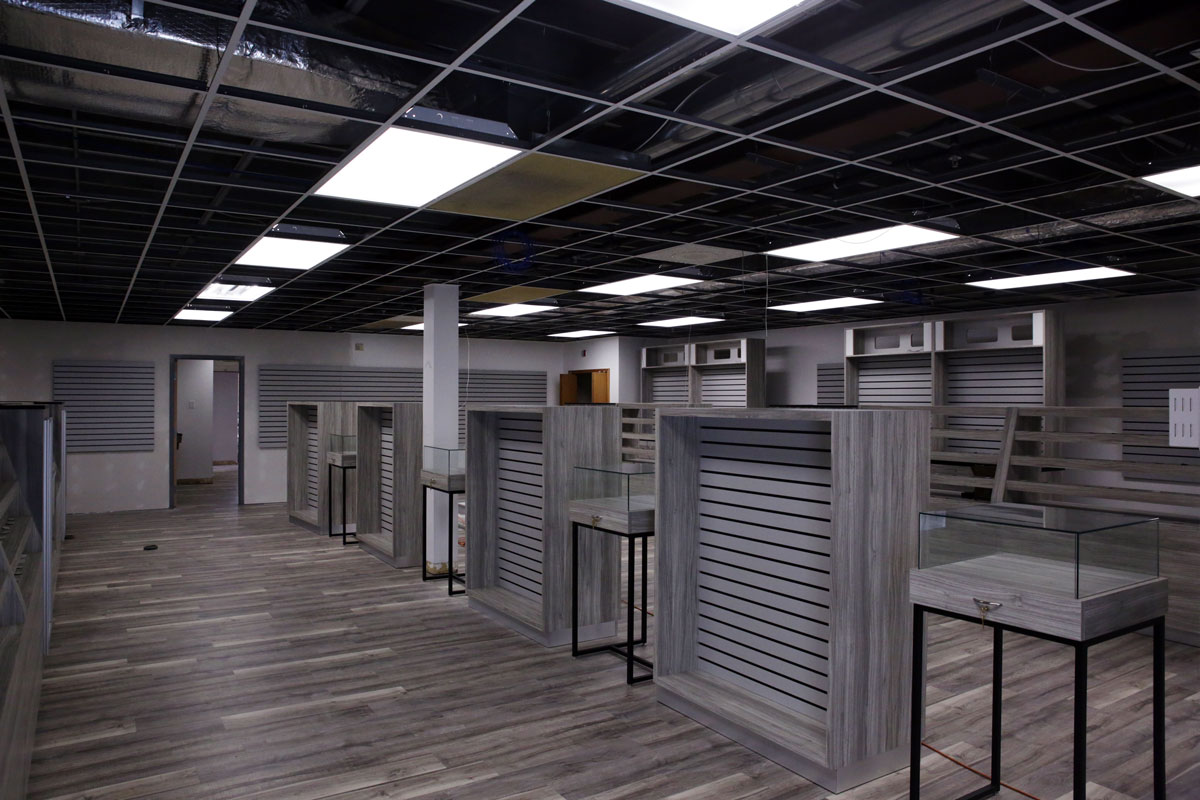
The space is shaping up to look like a cross between an upscale party store and a newly renovated condo. The shelves, the counters and the floor are all made of the same grey laminated wood material.
“I look at different retail establishments and people like to walk into Apple stores and different friendly places and that’s what I think about when I’m designing my store,” says Hannawa.
The shop is expected to open in the next couple of months. When it does, it could be the first medical marijuana store to open in Center Line. Other facilities are in the works, but none have opened yet.
Medical, But Leave Out the “Doobie”
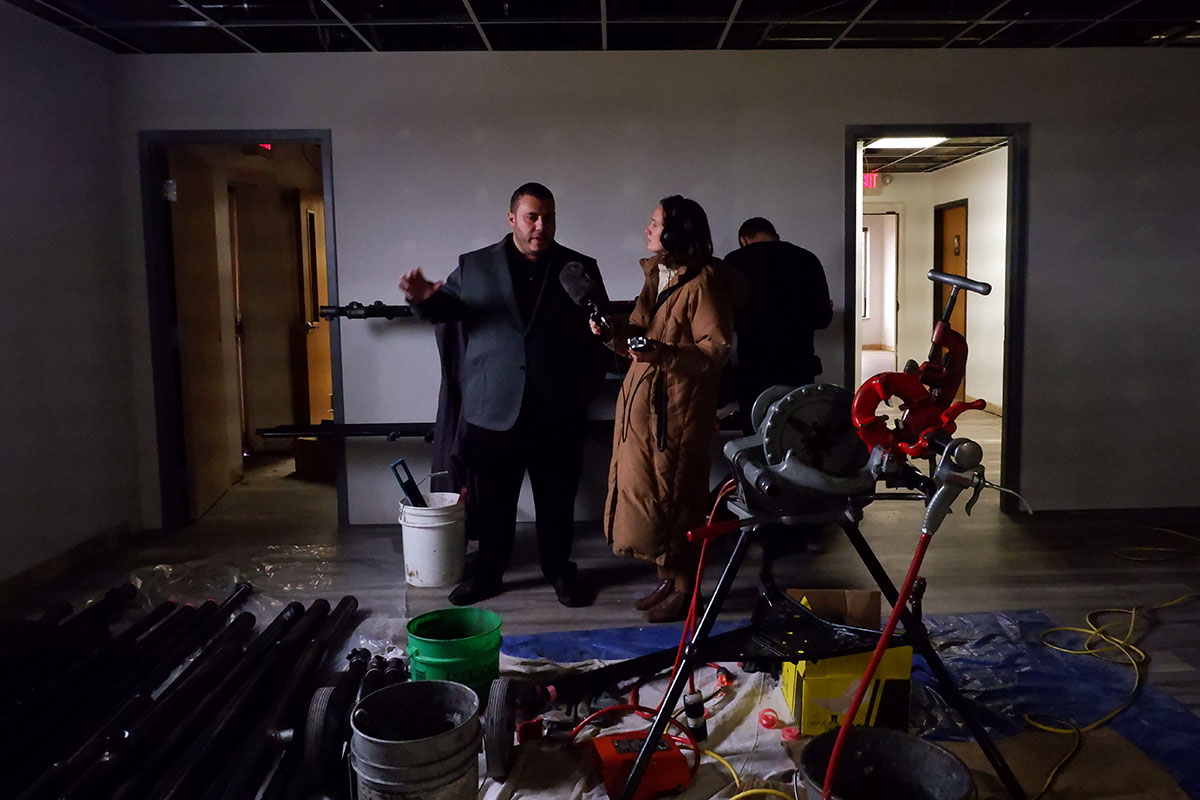
Medical marijuana was approved by Michigan voters in 2008. Since then, state officials say 132 municipalities have opted in. Center Line started thinking about its program about three years ago. City Manager Dennis Champine says officials at the time saw how allowing medical marijuana in their city could help revitalize the industrial area.
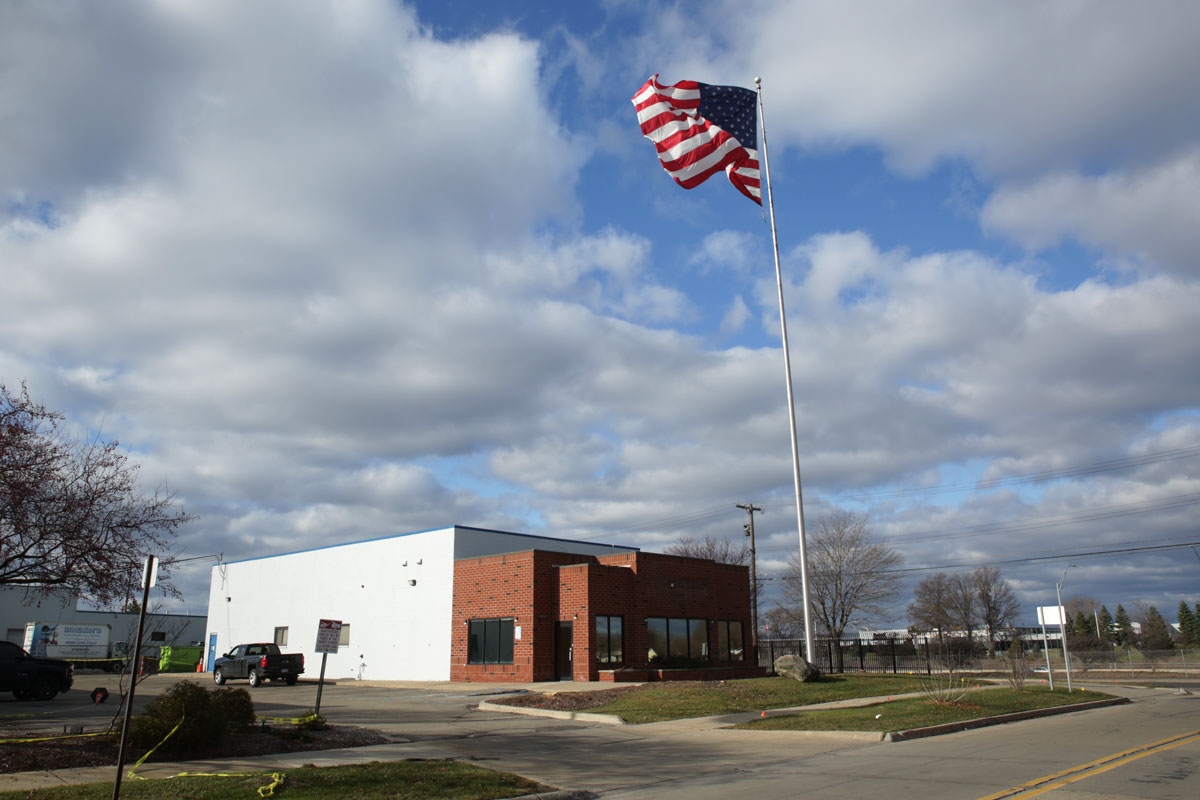
“We lost a lot of businesses from the reduction of manufacturing in the state of Michigan,” says Champine. “We had many vacant buildings in the industrial zone, many older vacant buildings, that really needed some ‘TLC.’ [We] realized that there was potential for us to bring forth a complete rethinking on how the industrial zone of our community could be purposed.”
The Center Line City Council passed an ordinance in 2017 that allowed for all types of medical marijuana businesses, but limited them to the city’s industrial areas. And that’s not the only requirement for these facilities. Exterior signage can’t contain marijuana leaves or words such as “weed,” “blunt” or “doobie.” Owners have to install security cameras that send live footage to the public safety department. And businesses must have secure, decorative fences.
Crossing the Lines
101.9 WDET’s Crossing the Lines series explores what unites the Metro Detroit region and what divides it.
Why Center Line? The city is a community with a deep history as well as a significant shift in diversity over the past 20 years. See more coverage
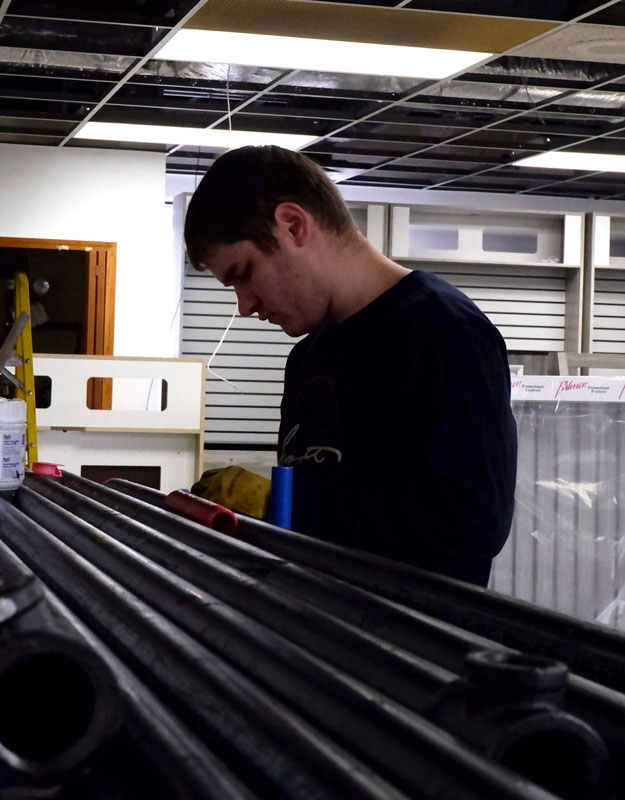
“What we’ve done is asked these business owners to spend a little more money on their projects here in Center Line,” says Champine. “They’re happy to do it because, frankly, a city of less than two square miles having issued upwards of 28 permits at 17 locations in the city really is something you won’t see anywhere else in Macomb County.”
Champine says these 17 medical marijuana locations are planning to make upgrades worth $35 to $40 million dollars. But beyond that, it’s difficult to assess the monetary benefits of Center Line’s involvement in the medical marijuana industry.
Money raised from permits has to be spent on administering the medical marijuana program. And Center Line won’t be getting revenue from taxes because the excise tax that existed expired in March.
But Champine says there are other ways he expects Center Line will benefit from its involvement in the medical marijuana industry.
“We have already one of our medical marijuana companies that have sent us a letter just this past week and indicated that they are making a $100,000 donation to the Center Line Fire Department,” says Champine.
More: Read Center Line’s full medical marijuana ordinance
The city’s ordinance requires medical marijuana businesses to do community outreach. According to Champine, one way to fulfill that requirement is by sending a large charitable donation to the city.
“So imagine if we have 17 locations what that could in itself lead to,” says Champine.
How Do Residents Feel About Medical Pot?
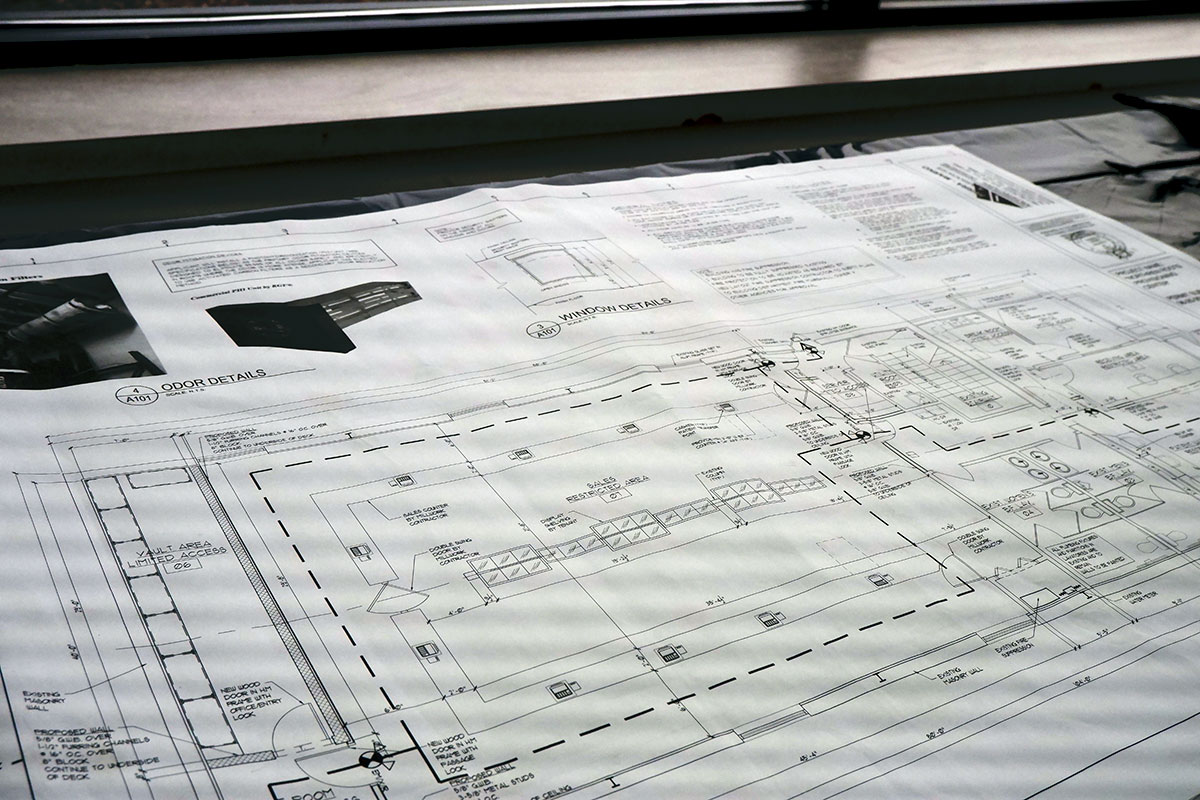
The program is a good deal for the city according to Champine. But is it a good deal for residents?
There’s been support for marijuana at the ballot box: 65 percent of Center Line residents voted in favor of the 2008 proposition to legalize medical marijuana in Michigan, according to Macomb County election results.
“A lot of other cities experienced many, many problems [with medical marijuana]. It just was a mess.” – Nick Hannawa, Northern Roots
Center Line resident Michael Trelfa says he doesn’t enthusiastically support medical marijuana, but he did vote for it.
“I don’t think it’s a bad idea, as long as everything is regulated and everybody plays by the rules,” says Trelfa.
And that’s what medical marijuana businesses want, too – for the municipalities to play fair. Places like Lansing, Troy and Warren have all encountered legal issues related to how they’ve dealt with medical marijuana.
“A lot of other cities experienced many, many problems. I mean, from northern cities to Western cities. It was just was a mess,” says Hannawa, the owner of Northern Roots. Hannawa – who is also a lawyer – has medical marijuana facilities in four Michigan municipalities. He says his experience in Center Line has gone smoothly.
“Here, it was a clean process. It was a pleasant experience. And when you operate in that kind of environment you look forward to the future,” says Hannawa.
For now, in Center Line, that future doesn’t include recreational pot sales, just medical marijuana.
Support the news you love.
Here at WDET, we strive to make our journalism accessible to everyone. As a non-profit public media institution, we maintain our journalistic integrity through independent support from readers like you. Because you value WDET as your source of news, music, and conversation, please make a gift of support today. Even $5 helps!
